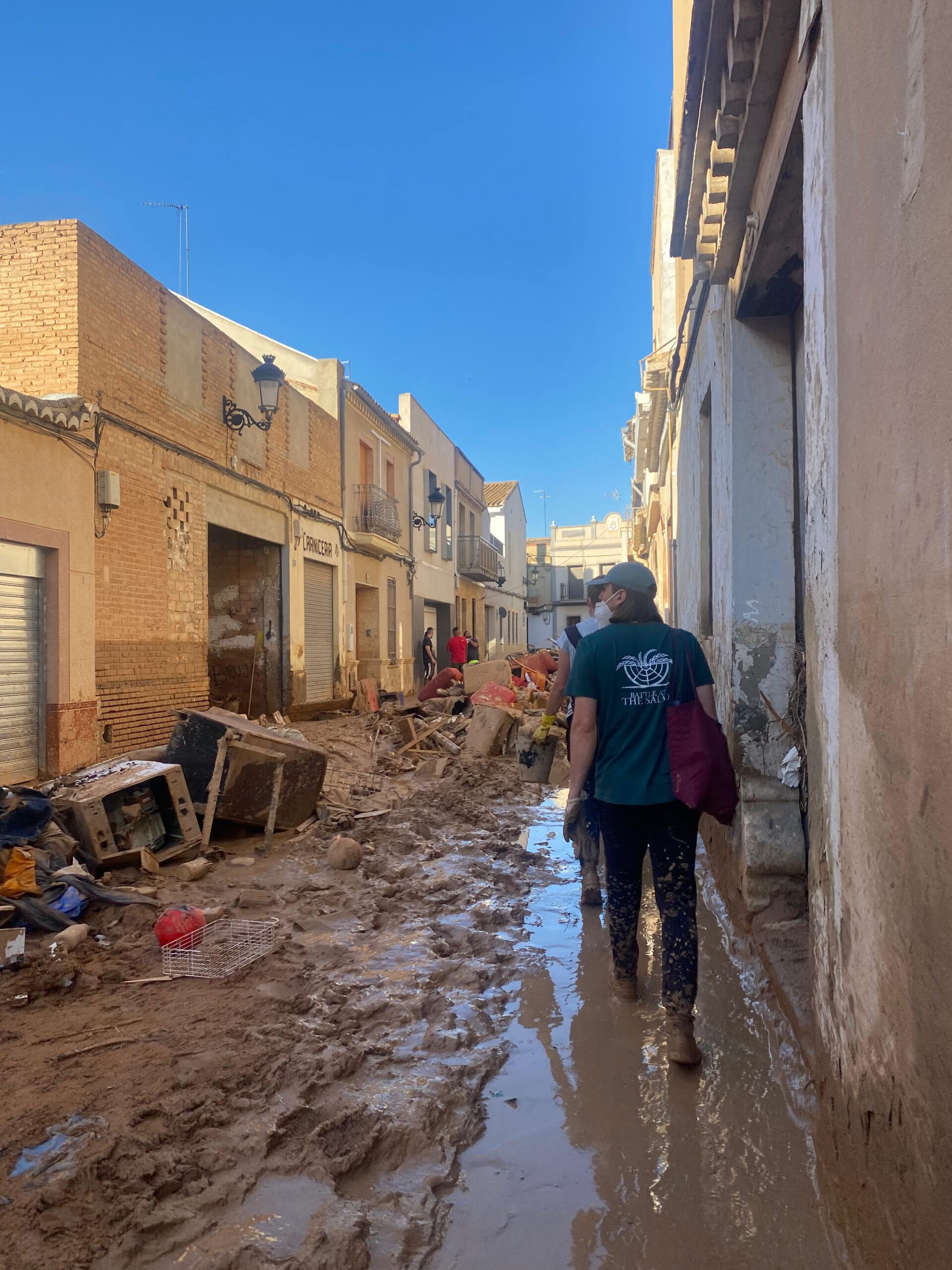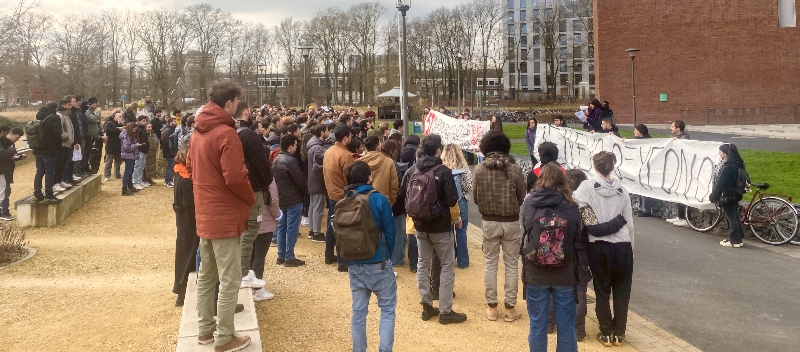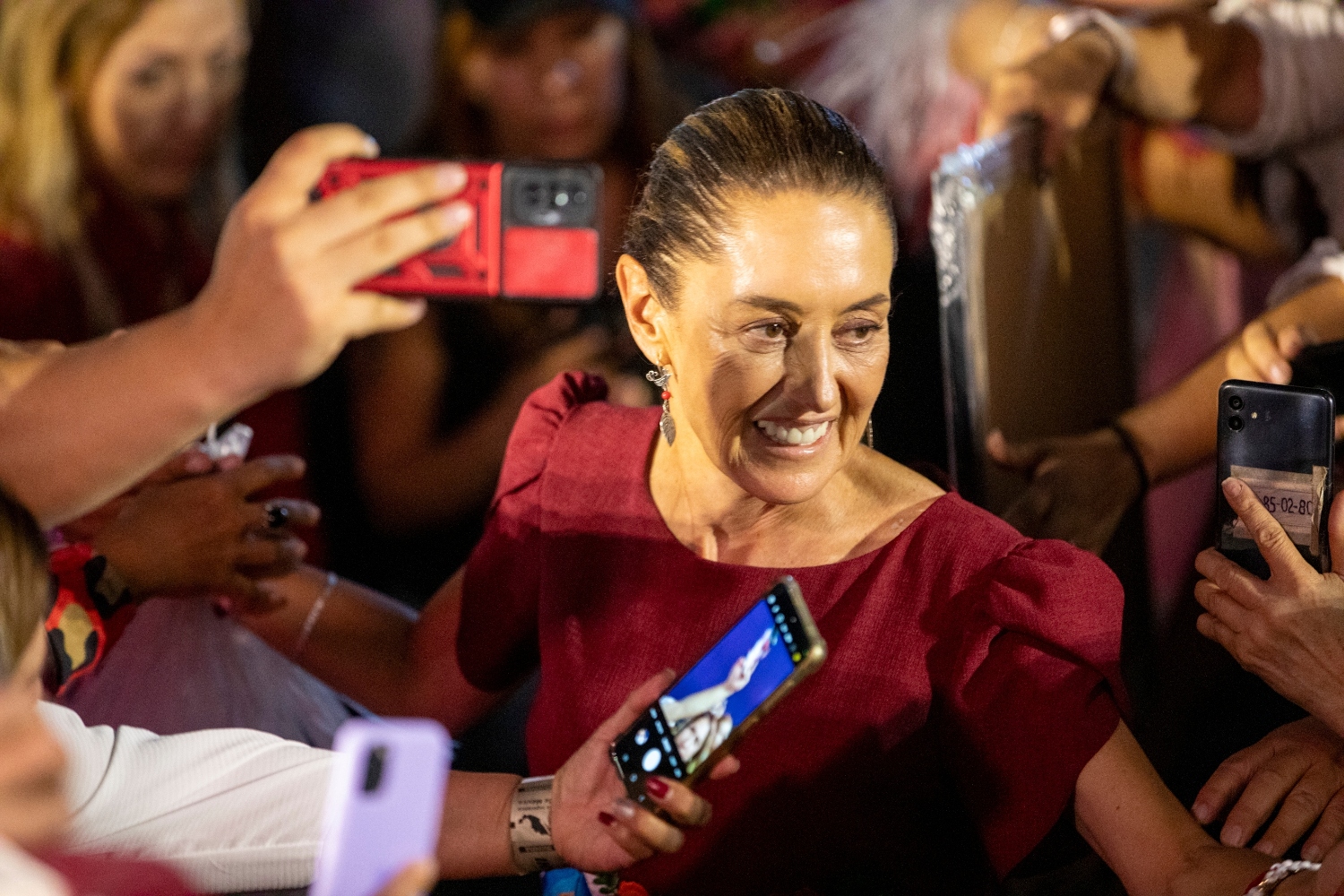WUR is incredibly diverse, with hundreds of internationals working and studying here, as well as many students and staff members travelling abroad. In this column, we ask one of them to comment on certain events in their home country or in the country they are visiting. This edition is a special one, with Linde Klop, a bachelor’s student in Environmental Sciences and a Resource student editor. Linde is doing her exchange in Valencia, which was hit by heavy floods last week.
‘A few months ago, I went on an Erasmus exchange with the promise, ‘This will be the best semester of your life’. I made socializing my main occupation; however, sometimes I still made it to the library for a bout of studying. Last week, for example. While I was immersed in my books, I was interrupted by a frazzled professor with windblown hair who announced that the university was being evacuated due to extreme weather. Extreme weather? In the Netherlands, not even soccer practice would be cancelled, let alone an entire university. We went home, happily seizing the excuse to pause our studies for the day and shift our attention to the festivities of the night. Little did we know that while we were dancing in the kitchen not 10 kilometres from our doorstep, the greatest flood ever to be recorded in Spain was taking place. While we were drowning ourselves in irresponsible amounts of alcohol, half of Valencia was underwater.
Little did we know that while we were dancing in the kitchen not 10 kilometres from our doorstep, the greatest flood ever to be recorded in Spain was taking place
What are you supposed to do when the best semester of your life turns into the worst moment of someone else’s? It took a while for me to switch off that exchange student part of my brain – the part I have trained so well to turn everything that happens into an ‘experience’. I was here to make memories for life, after all, to catalogue my stories so I can tell them to my friends at home and make them jealous. I knew I wanted to go and help in the affected areas, but I wondered: Was I motivated to help out of genuine kindness, or was it a morbid curiosity, a need to witness it firsthand so I could retell it in vivid detail? Was I a good citizen, or merely a tourist to other people’s suffering?
But helping with questionable intentions is still better than doing nothing
The next day I took to the nearest bazaar to arm myself with gloves, brooms, masks and shovels. Usually, this bazaar is like an abandoned warehouse, a place where consumerism goes to die. But on Saturday I was greeted by a gigantic line of people – each one ready to sacrifice their comfort, cleanliness and safety to help the people in the neighbouring towns. Like Snow White’s seven thousand dwarfs, with our brooms thrown over our shoulders, we walked towards the disaster. A river of people flowed through the streets of Valencia.
Seeing the sheer number of people, I was sceptical. There couldn’t possibly be that much to do. We would be fighting over a single task and instead of cleaning the mess we would be contributing to the chaos.
I was wrong.
As soon as we crossed the bridge, we left all sense of normalcy behind and entered a dystopian landscape. Cars lay crumpled and stacked like weightless toys. Living rooms were reduced to heaps of broken furniture, scattered and abandoned along the street, their former warmth and memories swallowed by the river. The scale of the devastation was so unimaginable that the only way we could process it was by comparing it to scenes from movies. We walked through the destruction as if we were visiting a film set, but reality kicked in as soon as our shoes were filled with mud for the first time.
As soon as we crossed the bridge, we left all sense of normalcy behind and entered a dystopian landscape
And then what? What are you supposed to do when walking through a town that seems to be endless in its ruin? You start. With a group of 15 people, we entered a house and asked if they needed our help—a question that felt ridiculous and unnecessary when a car had crashed through their walls, and you were standing knee-deep in mud, unsure if you were in their living room or garage. For hours, we shoveled mud, carried buckets, funneled water, and tapped into muscles we didn’t even know we had. Afterwards, we realized how foolish we must have looked to the locals, arriving with our three-euro brooms, believing we could clean this town with just a bit of sweeping.
We used anything we could find to help; we used pieces of old wardrobes and even framed paintings to scrape the streets clean. When you have nothing, anything becomes everything. I was so focused on our task that at times I forgot who we were doing it for. It started to feel like another one of our day trips – that Erasmus mindset was harder to kick then I thought.
But then I saw an old woman using a broom as a walking stick. When you have nothing, anything becomes your everything. These people had lost so much, and here I was, patting myself on the back for my hard work, secretly excited about how I might achieve a new record step count. I knew I could leave, take a shower, and return to my normal life. Back home, I could sit on my couch, satisfied with what I had accomplished. But the people of Paiporta? They could only unwind at the end of the day by sitting among the remnants of their favorite belongings, hoping that somewhere in that pile of clay, they might find something left unharmed.
Here I was, patting myself on the back for my hard work
We returned to that same house a day later. It had rained again, and it felt as if everything we had accomplished the day before had been undone. Once again, I found myself shoveling mud, growing increasingly annoyed when I couldn’t scoop effectively because something was in the way—a bed frame, a refrigerator, old books, children’s toys, an entire motorcycle. I plunged my shovel into the heap, indifferent to what I might break in the process; I just wanted to get the job done and clean the house.
The smell was worse than the day before – like rot, like waste, like death. I shoveled another scoop, the smell got worse – I tried not to think too much about why. Then a second. I found a script for a school play that time. I threw it away. Then a third, a fourth, a fifth, until the entire bucket was filled with things that were once memorabilia and now were only annoyances to an Erasmus student wanting to help.
We left at the end of the day and got a round of applause from the old lady with the broom. “Gracias, Hasta luego” “Hasta luego”. Because it was clear that we were going to need to come back.
Tomorrow.
The day after that.
The weeks after that.
The months after that.
Eventually, we will stop coming—not because the help is no longer needed, but because we feel we’ve done our part. We will forget and return to our lives, hopefully cherishing it a bit more.
But until we move on and move back home, we will try to help these people. Because they did not cause this natural disaster; we all did. If we continue to treat our world as if we have a spare, next time it will be your living room. My living room. And in the months to come, while you are flying away for weekend getaways, eating meat at every meal, and forgetting which bin is for plastic and which is for general waste, in Paiporta they are still struggling to clear the mud from their living rooms.

 Photo Linde Klop
Photo Linde Klop 

